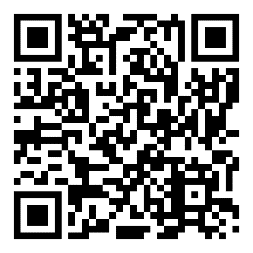Clinical Researcher—October 2024 (Volume 38, Issue 5)
PEER REVIEWED
Tony Succar, PhD, MScMed(OphthSc); Araksi Terteryan, MPH; Karen Manrique, MS; Eunjoo Pacifici, PhD, PharmD
Clinical trial education is the key to optimizing quality in trials, developing investigational medical products, and improving patient healthcare outcomes globally. Clinical trials are considered the gold standard for evaluating investigational medical products as safety, efficacy, quality, and regulatory approvals are based on scientific evidence. Similarly, the subjects covered (and how they should be presented) in clinical trial education should be evidence-based, rather than being left to the personal judgments of instructors, tradition, or other biases.
Clinical trials are becoming more complex in design and continue to evolve due to emerging treatments such as regenerative medicines utilizing innovative gene and cell therapies for conditions which were long thought of as incurable. Furthermore, greater-than-minimal-risk clinical trials investigating novel and invasive treatments can result in serious adverse events leading to hospitalization and death. Thus, formal competency-based education is crucial in replacing traditional on-the-job training.
To optimize clinical trial education, key areas of clinical and translational research must be implemented to produce graduates who demonstrate core competencies in the design, conduct, analysis, and monitoring of clinical trials. This paper highlights educational strategies for teaching clinical trials and serves as a basis for future research regarding the development, implementation, and evaluation of clinical trial education.
Background
Tremendous advances in science and medicine have been made as clinical trial design and quality have improved over the years, leading to enhanced validity, efficiency, and reporting. Clinical trials are crucial for developing new medical interventions and improving the quality of patient care worldwide. As the ultimate goal is to gain regulatory approval, optimizing clinical trial education will produce competent clinical trialists for the design, ethical conduct, monitoring, and analysis and dissemination of trial data, ensuring compliance with local laws and regulations.
Education also improves public awareness, recruitment, and retention of participants, which are all crucial elements to the success of trials. Just as clinical trialists base the safety and efficacy of investigational products on scientific evidence, educationalists must similarly base their teaching practices on sound educational evidence and theory.
In line with this, the Joint Task Force for Clinical Trial Competency (JTF) has developed a framework that outlines the core competencies for clinical research professionals, as described next (Sonstein and Jones, 2018).
Clinical Trial Competencies
The eight core competency domains for clinical research professionals developed by the JTF include:
- Scientific Concepts and Research Design
- Ethical and Participant Safety Considerations
- Investigational Products Development and Regulation
- Clinical Study Operations (Good Clinical Practice [GCP])
- Study and Site Management
- Data Management and Informatics
- Leadership and Professionalism
- Communication and Teamwork
The purpose of this framework is to provide a standardized set of competencies for clinical research professionals to facilitate consistent education, training, and professional development. The framework bolsters workforce development efforts by defining the essential skills and knowledge required for various roles in clinical research. This is important, as the competencies guide the design and evaluation of academic programs and training curricula to ensure alignment with industry needs and accreditation standards, and aid in the development of performance evaluations and career advancement pathways for clinical research professionals. Thus, these competencies are used to formalize education in clinical research and, due to the evolving clinical trial landscape, they should be maintained through continuing education initiatives.
Based on this framework, the Association of Clinical Research Professionals (ACRP) developed a Core Competency Framework for Clinical Study Monitoring™, which outlines the core competencies required for individuals involved in clinical study monitoring.
With some editing for clarification, the following list covers the first-ever set of monitoring competencies harmonized with the Core Competency Framework for Clinical Research Professionals developed by the JTF. A monitor should possess an understanding of:
- Subject confidentiality and data rights and privacy
- The product development lifecycle and significance of design features in clinical trial protocols
- The informed consent process
- Subject recruitment and retention at the investigator site
- The identification, reporting, and resolution of suspected misconduct
- Compliance (including any amendments) to ensure protection of the rights and well-being of patients and the integrity of the study and data
- The International Council for Harmonization (ICH) tenets for GCP
- Adequacy of approvals or notifications to ethics committees/institutional review boards (ECs/IRBs) and/or regulatory authorities
- Identification of differing safety events and understanding the reporting requirements of each
- Training compliance
- The purpose of essential documents and the requirements for maintenance and archiving
- Audit and inspection processes
- The roles and responsibilities of, and relationships between, the clinical research associate and investigators, sponsors, and ECs/IRBs per ICH GCP
- The requirements for accurate and complete site source documents (verification that data reported in the case report form are consistent with source documentation)
- How to plan and conduct all types of monitoring visits
- Time management and prioritization of work
- How to verify that biosamples have been appropriately handled, stored, labelled, and shipped
- How to verify that third-party vendor data are appropriately collected, transferred, and stored
- Investigational product (IP) accountability, the IP chain, and IP blinding
- Assessment of principal investigator qualifications and resources
- Critical data and processes
- Query issuance and resolution
- Clinical trial systems of record
- Compliance with electronic record requirements and regulations
- Personal work product accountability
- Cultural awareness and sensitivity
- Professional behavior
- Their relationship and communication with clinical study team members and investigative site staff
Additionally, ACRP has developed Core Competency Guidelines for Clinical Research Coordinators™.
Global Clinical Trial Educational Strategies
With clinical trial registries showing increasing trends in the number of trials being conducted globally, educational programs are needed to meet a growing demand for trained professionals. Moreover, education should be more formalized to provide sustainable careers.
In some cases, educational programs for clinical research professionals are degree-conferring programs focusing on clinical trial management. In other cases, organizations have developed self-study modules, self-help web portals, and symposia that are freely accessible to help address constraints of budget and resources in an academic environment (Manrique et al., 2024) (see Table 1). Although quality investigator-initiated trials play a crucial role in product development, gaps still exist in training the professionals to conduct clinical trials properly (Spinrad et al., 2019). This has provided an impetus for academic and non-academic institutions to develop various educational and training programs and tools.
Table 1: Educational Training for Clinical Research Professionals*
| Resource | Description | Target Audience | Mode | Link |
| Regulatory Resource Web Portal | Overview of regulatory information and resources to guide clinical research professionals in their approach to planning and conducting clinical trials in the U.S. | Clinical Research Professionals, Academia | Online, Self-Help | https://sc-ctsi.org/resources/regulatory-resources |
| Online Study Modules | Free self-study modules providing fundamental and practical knowledge of clinical research monitoring, auditing, and U.S. Food and Drug Administration site visit readiness, with an emphasis on investigator-initiated trials. | Clinical Research Professionals, Academia | Online, Self-Paced | https://uscregsci.remote-learner.net/login/index.php
|
| Regulatory Science Symposia | Educational symposia focused on various subjects relevant to current needs and requests of the clinical trial workforce. | Clinical Research Professionals, Academia, Industry | Live Symposia | https://mann.usc.edu/departments/regulatory-quality-science-department/dk-kim-center/capacity-building/regulatory-science-bootcamps-symposia/
|
| Translational Workforce Development Online Training Catalog | Online training catalog focused on subjects relevant to current needs and requests of the clinical trial workforce; Expanding broad availability of symposia material. | Clinical Research Professionals, Academia | Online, Self-Paced | https://twd.ce.emorynursingexperience.com/
|
*This work was supported by grant UL1TR001855 from the National Center for Advancing Translational Science of the U.S. National Institutes of Health (NIH).
There is an emerging need for more academically inclined and structured education for clinical research professionals to prepare them to handle the rising complexities of conducting and managing clinical trials. However, most industry employers focus on in-house training basic concepts, assuming that the employees will learn the rest through experience. This on-the-job training, however, may be narrow in scope and not provide trainees with the ability to see the complete lifecycle of medical product development and respond to unexpected occurrences. The additional time and resources dedicated to training clinical researchers with no formal qualifications could better be spent on high-level tasks of conducting clinical research.
The NIH and ACRP offer educational resources and programs on clinical trials. Further educational strategies which have been implemented in clinical trial curricula include a study in Australia describing the use of a simulation workshop in teaching the clinical research process to nursing students. This study demonstrated an increase in both students’ interest and knowledge (Lee and Peacock, 2020). Burhansstipanow and colleagues developed a clinical trials curriculum for Native Americans and outlined their lessons learned from this curriculum (Burhansstipanow et al., 2003).
Moreover, Yan and colleagues described in detail a simulation-based clinical research curriculum developed in China. The curriculum was divided into the design and implementation stages of clinical trials and observational studies, containing 16 classes. Students were engaged in simulation as an investigator, as well as experiencing a variety of simulation role changes, including for statisticians, sponsors, monitors, and ethics committee members. The simulation content covered protocol writing, review and approval of clinical trials, registration, and implementation of randomization, masking, and statistical analysis. Oral reports and record files were used for the formative evaluation of each simulation, which included debriefing with guided reflection questions (Yan et al., 2022).
The University of Hawai’i Cancer Center implemented a clinical trial education intervention for medical students, including lectures, resource manuals, problem-based learning scenarios, and optional practicums. After completing this comprehensive intervention, there were significant increases in students’ understanding, knowledge, and positive attitudes toward clinical trials. Further, exposure to clinical trial education during medical school can influence future practice patterns and increase patient referrals to clinical trials (Anzai et al., 2023).
Early simulation in research teaching were conducted by Peacock (Peacock, 1981) and Thiel (Theil, 1987) and high-fidelity simulation in clinical research training was first reported in 2004 (Taekman et al., 2004), which used a patient as a simulated study participant and found the simulation exercise could increase their confidence in developing a clinical research protocol. For simulation teaching in specific research design, an outbreak investigation simulation was developed to teach nursing students principles of epidemiology (Okatch, 2016). A study conducted in Korea reported on the feasibility and positive effects of a simulated clinical crossover trial to teach clinical studies, during which students were randomly grouped to distinguish between two different types of cola as simulated subjects (Kim et al., 2020).
Potential benefits of the incorporation of simulation into clinical research were reported as including decreasing the learning curve for protocols, improving study design, and increasing participant safety (Brindley et al., 2009). Other advantages of simulation in clinical research education include enhancements to practice and engagement, interactivity, teamwork training, case-based coherence, professionalism, and student-centered active learning, and the use of comprehensive ability exercises allowing students to make mistakes in a safe environment (Yan et al., 2022). This last study also noted that the challenges for simulation include significant effort expenditure by students and teachers, insufficient faculty specializing in both clinical research and simulation teaching, dependency on well-designed cases/scrips, requirements for certain environments and equipment, and the fact that this approach is not applicable for large classes.
Conclusion
Clinical trial education in academia is crucial for fostering greater appreciation and patient engagement in clinical research, ultimately contributing to the advancement of medical knowledge and improved healthcare outcomes. In addition, clinical trial training and education need to be more formalized through university postgraduate education to provide a sustainable workforce.
The competency framework developed by the JTF and ACRP serve as valuable resources for academic institutions, employers, and professionals in the clinical research field, promoting standardization, quality, and continuous improvement in the conduct and monitoring of clinical trials. The competencies provide a standardized approach to clinical research education and professional development, ensuring that research professionals across different roles and regions have a common understanding of the essential skills and knowledge required in clinical research. These competencies, as well as the development of longitudinal assessment strategies, need to be implemented to ensure that their goals are met and that the education is evidence-based.
References
Sonstein SA, Jones CT. 2018. Joint Task Force for Clinical Trial Competency and Clinical Research Professional Workforce Development. Front Pharmacol 16(9):1148. PMID:30386238; PMCID:PMC6198073. doi:10.3389/fphar.2018.01148
Manrique K, Pacifici E. 2024. Addressing the Regulatory Needs and Challenges of Academic Researchers by Creating a One-Stop Shop Web Portal. Journal of Clinical and Translational Science 8(s1):151. doi:10.1017/cts.2024.434
Spinrad A, Pire-Smerkanich N, Pacifici E, et al. 2019. Ensuring Quality in Investigator-Initiated Clinical Trials through Monitoring Concepts Training. Journal of Clinical and Translational Science 3(s1):117. doi:10.1017/cts.2019.267
Lee N, Peacock A. 2020. Using simulation to teach undergraduate nursing and midwifery students research design. Nurse Educ Pract 45:102804. doi:10.1016/j.nepr.2020.102804
Burhansstipanow L, Krebs LU, Bradley A, Gamito E, Osborn K, Dignan MB, Kaur JS. 2003. Lessons learned while developing “Clinical Trials Education for Native Americans” curriculum. Cancer Control 1(5 Suppl):29–36.
Yan S, Huang Q, Huang J, Wang Y, Li X, Wang Y, Luo L, Wang Y, Guo Y, Zeng X, Jin Y. 2022. Clinical research capability enhanced for medical undergraduates: an innovative simulation-based clinical research curriculum development. BMC Med Educ 22(1):543. PMID:35836218; PMCID:PMC9281572. doi:10.1186/s12909-022-03574-6
Anzai NE, Wieland J, Kasuya RT, Higuchi P, Cassel K. 2023. Medical School Clinical Trials Educational Intervention: Impact on Knowledge and Attitudes. J Cancer Educ 38(5):1479–85. PMID:37170045; PMCID:PMC10509125. doi:10.1007/s13187-023-02287-8
Peacock D. 1981. A simulation exercise on scientific research for use in undergraduate teaching. J Geogr High Educ 5(2):139–43. doi:10.1080/03098268108708811
Thiel CA. 1987. Views on research: the cookie experiment: a creative teaching strategy. Nurs Educ 2(3):8. doi:10.1097/00006223-198705000-00004
Taekman JM, Hobbs G, Barber L, Phillips-Bute BG, Wright MC, Newman MF, Stafford-Smith M. 2004. Preliminary report on the use of high-fidelity simulation in the training of study coordinators conducting a clinical research protocol. Anesth Analg 99(2):521–7. doi:10.1213/01.ANE.0000132694.77191.BA
Okatch H, Sowicz TJ, Teng H, Pilling L, Harmon M, Brewer C, Buttenheim A. 2016. Nursing students as epidemiologists: a simulation approach. Clin Simul Nurs 12(2):51–61. doi:10.1016/j.ecns.2015.12.001
Kim TH, Bae SJ, Kim DH, Kang JW. 2020. Teaching clinical trials in Korean medicine: novel modules and student perceptions of importance and achievement. J Altern Complement Med 26(1):72–3. doi:10.1089/acm.2019.0266
Brindley PG, Dunn WF. 2009. Simulation for clinical research trials: a theoretical outline. J Crit Care 24(2):164–7. doi:10.1016/j.jcrc.2009.01.009

Tony Succar, PhD, MScMed(OphthSc), is an Assistant Professor at the Mann School of Pharmacy and Pharmaceutical Science, Department of Regulatory and Quality Sciences, University of Southern California.

Araksi Terteryan, MPH, is Project Administrator – Regulatory Science Research and Co-Curricular Program, at the Mann School of Pharmacy and Pharmaceutical Sciences, Department of Regulatory and Quality Sciences, University of Southern California.

Karen Manrique, MS, is Project Administrator at the Southern California Clinical and Translational Science Institute.

Eunjoo Pacifici, PhD, PharmD, is Chair and Associate Professor at the Department of Regulatory and Quality Sciences, Mann School of Pharmacy and Pharmaceutical Sciences, University of Southern California.






